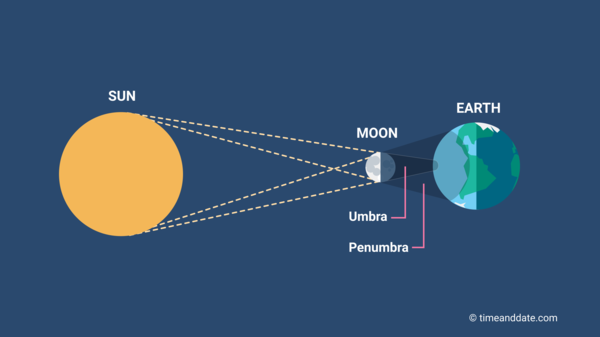Which of the following rock types forms from cooling lava or magma?
A. Sedimentary
B. Metamorphic
C. Igneous
D. Fossilized
What is C. Igneous?
Which layer of the atmosphere contains most weather events?
A. Troposphere
B. Thermosphere
C. Stratosphere
D. Mesosphere
What is A. Troposphere?
What do contour lines on a topographic map represent?
A. Temperature gradients
B. Elevation above sea level
C. Types of rock layers
D. Earthquake activity
What is B. elevation above sea level?
What is the main source of energy that drives the water cycle?
A. Earth’s rotation
B. Gravity
C. The Moon’s gravity
D. The Sun
What is D. The Sun?
What causes the seasons on Earth?
A. Distance from the Sun
B. Rotation of Earth
C. Tilt of Earth's axis
D. Shape of Earth's orbit
What is C. Tilt of the Earth's axis?
Which type of plate boundary causes mid-ocean ridges to form?
A. Transform
B. Convergent
C. Divergent
D. Subductive
What is C. Divergent?
High-pressure systems usually bring —
A. Stormy weather
B. Clear skies
C. Heavy snow
D. Tornadoes
What is B. Clear Skies?
The Earth’s outer core is —
A. Solid iron and nickel
B. Liquid rock
C. Liquid iron and nickel
D. Rigid and brittle
What is C. Liquid iron and nickel?
Which process moves water from Earth's surface to the atmosphere?
A. Condensation
B. Precipitation
C. Infiltration
D. Evaporation
What is D. Evaporation?
Which factor determines how a star will evolve and what type of final stage it will reach?
A. Its distance from Earth
B. Its temperature at birth
C. Its mass
D. The number of planets orbiting it
What is C. Its mass?
What is the primary cause of earthquakes?
A. Ocean tides
B. Movement of tectonic plates
C. Weathering of rocks
D. Erosion by rivers
What is B. Movement of tectonic plates?
A class tests how water temperature affects the rate at which sugar dissolves. What is the dependent variable?
A. The type of sugar used
B. The temperature of the water
C. The rate at which sugar dissolves
D. The amount of water used
What is C. The rate at which sugar dissolves?
Fossils are most commonly found in —
A. Igneous rocks
B. Metamorphic rocks
C. Volcanic Ash
D. Sedimentary rocks
What is D. Sedimentary rocks?
Which human activity is most likely to increase runoff and decrease groundwater recharge?
A. Planting trees
B. Building parking lots
C. Installing rain barrels
D. Constructing wells
What is B. Building parking lots?
A student wants to test whether the color of a surface affects how hot it gets in sunlight. What is the best dependent variable to measure?
A. Type of thermometer
B. Surface temperature
C. Color of the surface
D. Time of day
What is B. Surface temperature?
Which process is responsible for changing sediment into sedimentary rock?
A. Melting and cooling
B. Heat and pressure
C. Crystallization
D. Compaction and Cementation
What is D. Compaction and Cementation?
What does a barometer measure?
A. Temperature
B. Humidity
C. Wind speed
D. Air pressure
What is D. Air pressure?
In an experiment to determine the effect of sunlight on plant growth, the control group should be —
A. Plants placed in complete darkness
B. Plants watered with extra fertilizer
C. Plants receiving full sunlight
D. Plants exposed to wind
What is A. Plants placed in complete darkness?
Which process allows water to seep into the ground and replenish aquifers?
A. Runoff
B. Condensation
C. Infiltration
D. Transpiration
What is C. Infiltration?

What type of eclipse is shown in the diagram above?
A. Lunar eclipse
B. Solar eclipse
C. 1st quarter moon
D. Full moon
What is B. Solar eclipse?
A student sets up an experiment to test how the type of soil affects the growth of tomato plants. Which is the independent variable?
A. Amount of water given
B. Type of soil used
C. Height of tomato plants
D. Number of days in the experiment
What is B. Type of Soil?
A cold front typically brings —
A. Warm, steady rain
B. Clear skies and rising temperatures
C. Thunderstorms followed by cooler air
D. Decreasing air pressure and humidity
What is C. Thunderstorms followed by cooler air?
Which principle states that older rock layers lie beneath younger ones?
A. Cross-cutting relationships
B. Superposition
C. Original horizontality
D. Uniformitarianism
What is B. Superposition?
Which of the following would be considered a constant in an experiment testing how salinity affects the freezing point of water?
A. Amount of salt added
B. Starting temperature of the water
C. Volume of water used
D. Freezing point of water
What is C. Volume of water used and/or B. Starting temperature of the water?

Which type of star is very hot but not very bright?
a. White dwarf
b. Main sequence
c. Red dwarf
d. Supergiants
What is a. White dwarf?